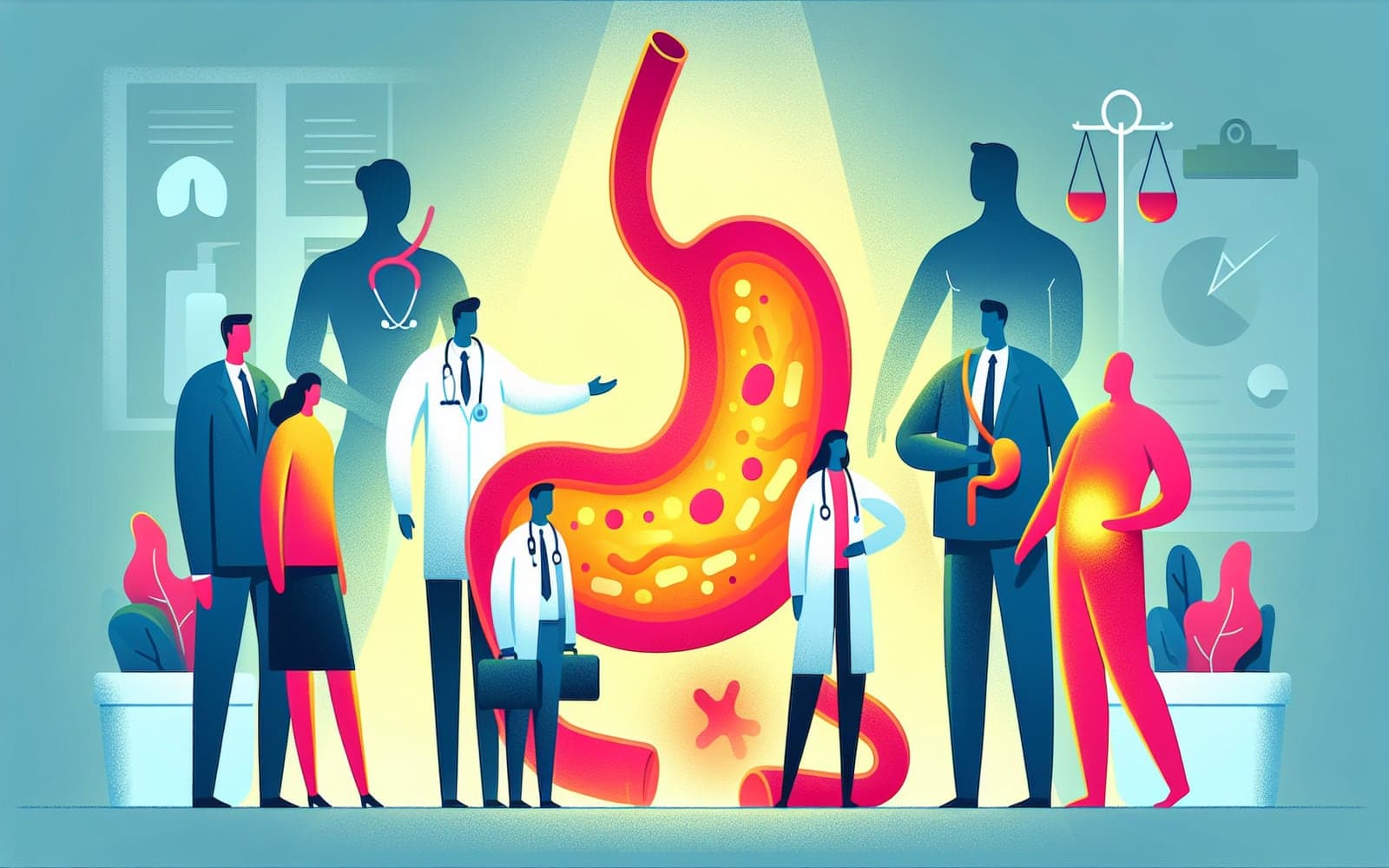Do You Really Know What Causes Peptic Ulcer Complications?
Published: Nov 26, 2023
Peptic ulcers are more than just a stomachache—they can lead to serious complications. Understanding these complications is vital for recognizing when medical intervention becomes necessary.
Contents
What Are Peptic Ulcer Complications?
Complications from peptic ulcers occur in 10-20% of patients and include bleeding, perforation, and gastric outlet obstruction. These conditions are serious and require prompt medical attention. Each complication presents unique challenges and may necessitate different treatment approaches.
Why Do These Complications Occur?
The underlying cause of these complications often relates to the erosion of the stomach lining. This erosion can lead to bleeding or even a hole (perforation) in the stomach wall. Gastric outlet obstruction occurs when chronic inflammation causes scarring that blocks the stomach's exit.

Who Is at Risk?
Certain factors increase the risk of developing complications from peptic ulcers. These include long-term use of nonsteroidal anti-inflammatory drugs (NSAIDs) and infection with Helicobacter pylori. Smoking and excessive alcohol consumption also contribute to the risk.
Frequently Asked Questions
The main complications include bleeding, perforation, and gastric outlet obstruction.
They occur in 10-20% of patients with peptic ulcers.
NSAID use, Helicobacter pylori infection, smoking, and alcohol use increase risk.
Proper management and lifestyle changes can reduce the risk of complications.
Key Takeaways
Understanding and managing risk factors is key to preventing peptic ulcer complications—are you at risk?
Talk to Doctronic to learn more about your risk and prevention strategies today!Related Articles
References
Lau JY, Sung J, Hill C, et al. Systematic review of the epidemiology of complicated peptic ulcer disease. Digestion 2011; 84:102.
Kavitt RT, Lipowska AM, Anyane-Yeboa A, Gralnek IM. Diagnosis and Treatment of Peptic Ulcer Disease. Am J Med 2019; 132:447.
Always discuss health information with your healthcare provider.

